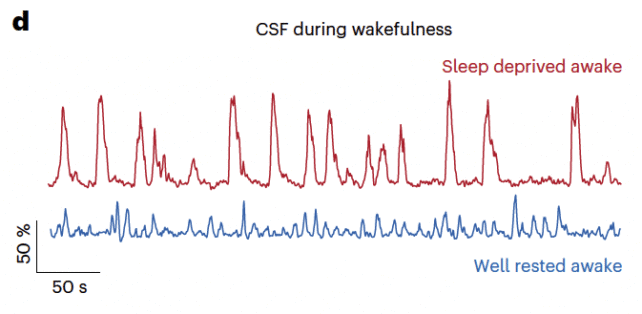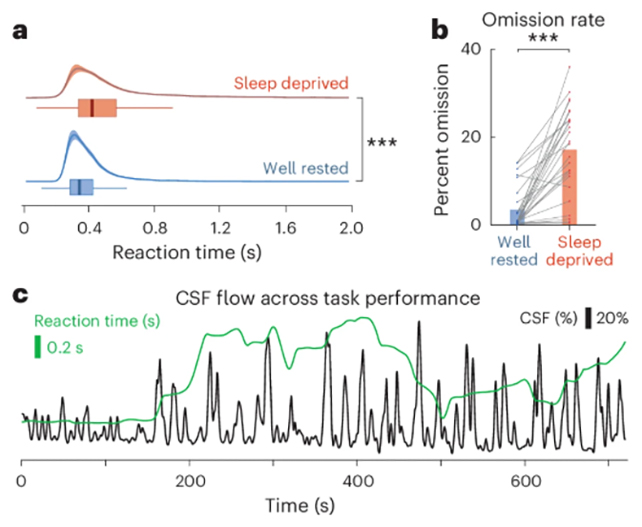We're all familiar with the feeling of zoning out, especially when we're sleep-deprived. A new study suggests these brief wanderings of attention are our brain's attempts to catch up on maintenance that usually happens while we snooze.
The study, from researchers at the Massachusetts Institute of Technology (MIT), used brain measurements taken by both electroencephalogram (EEG) caps and functional magnetic resonance imaging (fMRI) scanners.
Periods of zoning out – or "attentional failures", in the words of the study – were accompanied by a wave of cerebrospinal fluid (CSF) flowing out of the brain, before it returned a second or two later.
Related: Fragments of Bacteria in Our Gut May Lull Our Brains to Sleep at Night
The patterns matched the waves of CSF that usually happen during deep sleep. The thinking is that this nightly fluid flow helps wash away waste products that build up during the day.
"If you don't sleep, the CSF waves start to intrude into wakefulness where normally you wouldn't see them," says MIT neuroscientist Laura Lewis.
"However, they come with an attentional trade-off, where attention fails during the moments that you have this wave of fluid flow."

The study participants were each tested twice: after a night of restful sleep and after a night in the lab with no sleep at all. Unsurprisingly, their cognitive performance during the study tests was generally worse when they hadn't gotten any shut-eye the night before.
While zoning out occasionally happened after a full night's slumber, it was much more common after the participants had stayed awake all night. It's almost as if the brain is trying to catch up with a burst of microsleep, at the temporary cost of your mind's focus.

"One way to think about those events is because your brain is so in need of sleep, it tries its best to enter into a sleep-like state to restore some cognitive functions," says neuroscientist Zinong Yang, who led the study.
"Your brain's fluid system is trying to restore function by pushing the brain to iterate between high-attention and high-flow states."
We know that sleep is absolutely essential to our health and well-being. Missing out on these periods of rest increases our risk of disease, causes impairments in certain parts of the brain, and changes our perspective on the world. And this study shows some of the ways the brain tries to catch up with missed sleep.
While the outflow and influx of CSF was the most notable physiological change accompanying attentional failures, the researchers also found that breathing and heart rate slowed, and pupil size got smaller.
The researchers didn't investigate these findings in much detail, but have a hypothesis that periods of zoning out may affect the body as a whole, possibly managed by a single control system.
"These results suggest to us," says Lewis, "that there's a unified circuit that's governing both what we think of as very high-level functions of the brain – our attention, our ability to perceive and respond to the world – and then also really basic fundamental physiological processes like fluid dynamics of the brain, brain-wide blood flow, and blood vessel constriction."
The research has been published in Nature Neuroscience.

